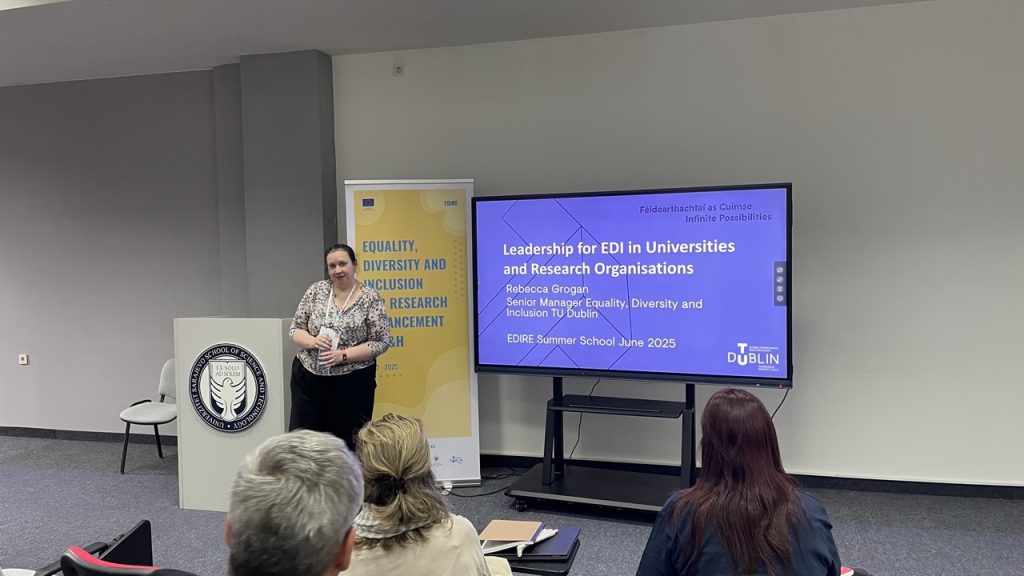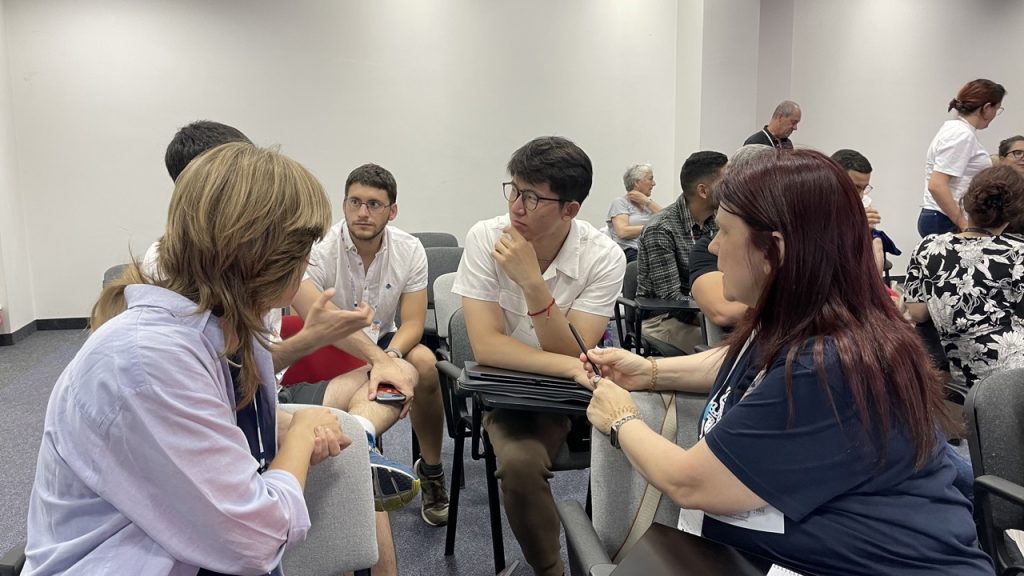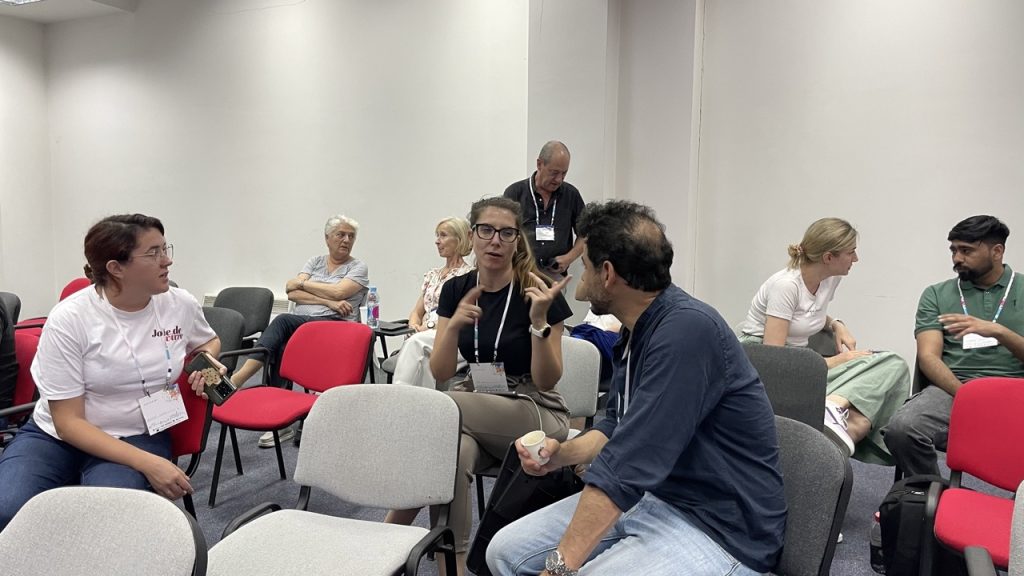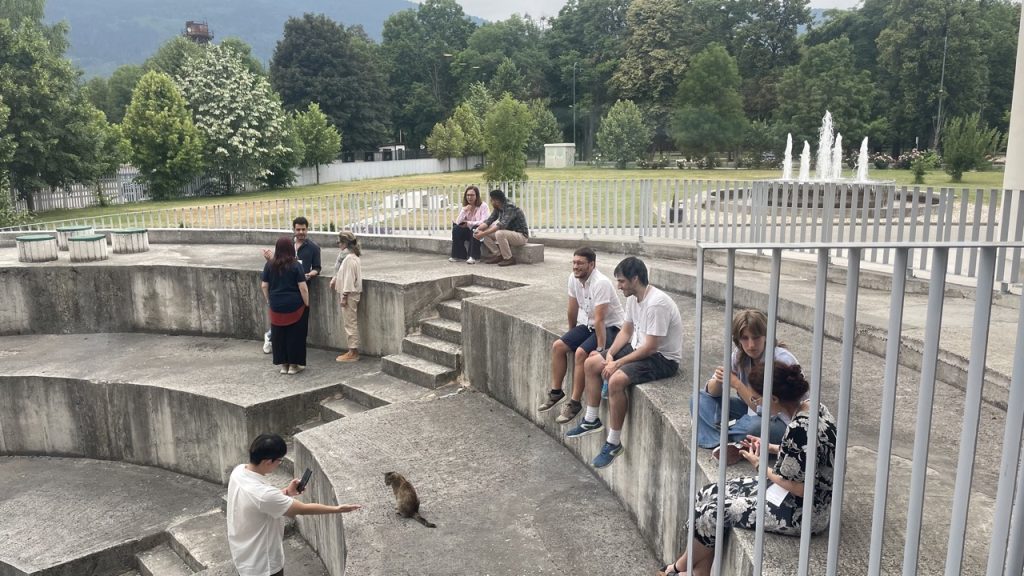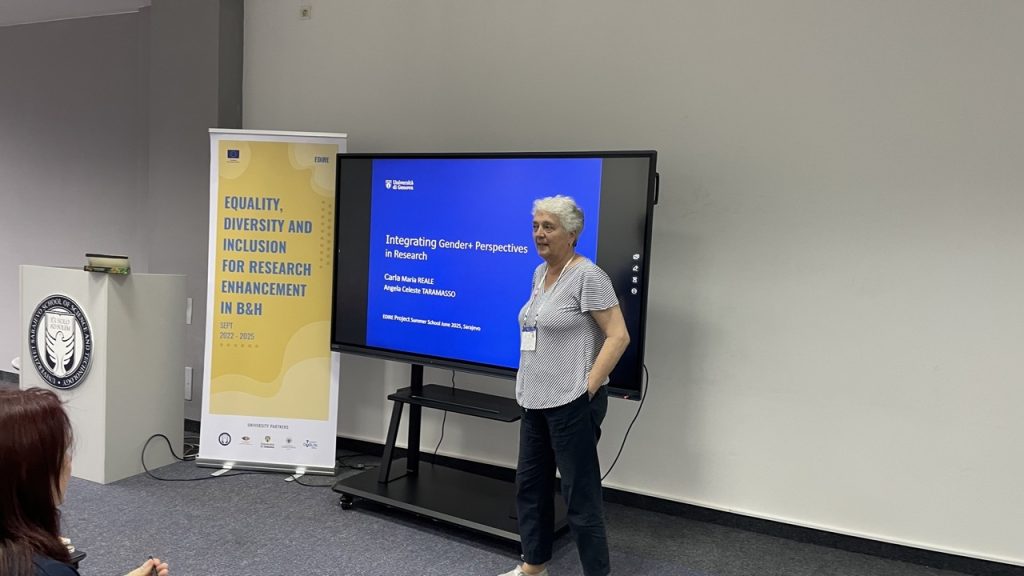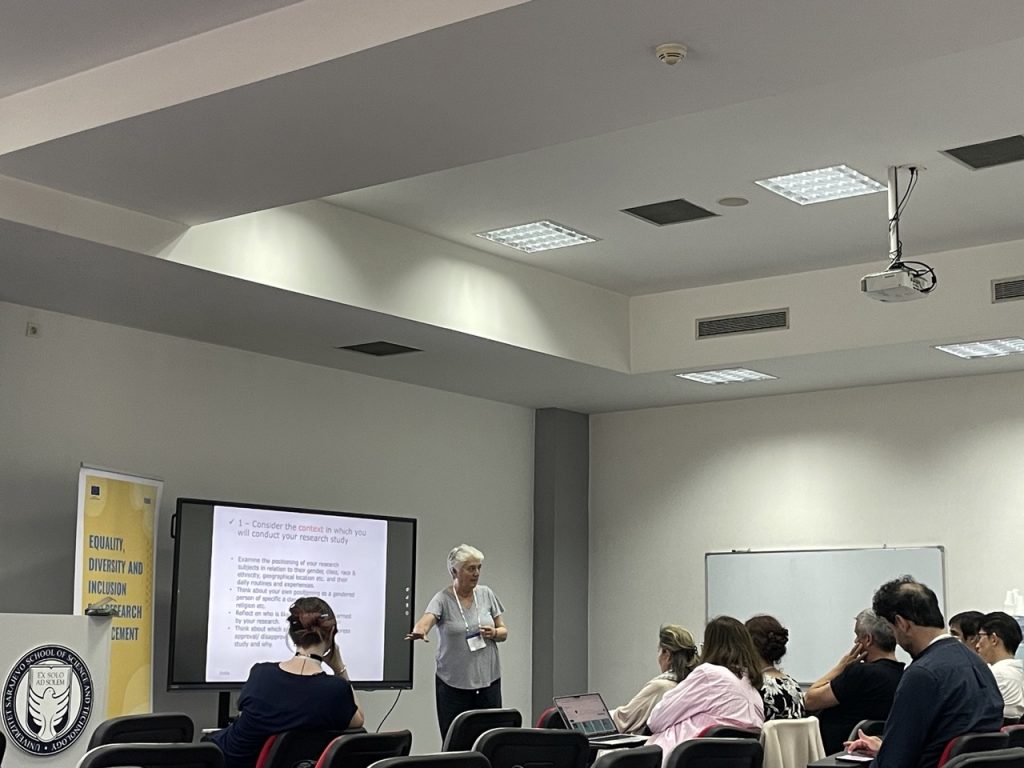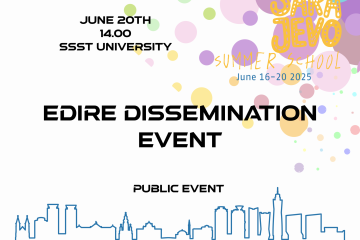EDI Principles in Academic Research
The first lecture was delivered by Sara Clavero from the Technological University Dublin, marking the official start of the academic component of the EDIRE Summer School. Her lecture, titled “EDI Principles in Academic Research,” offered participants a comprehensive overview of Equity, Diversity, and Inclusion (EDI) and their relevance and application in academic research environments. Dr. Clavero explored key concepts, policy frameworks, and practical tools for integrating EDI principles into research design, implementation, and dissemination. Participants engaged in critical discussions on how inclusive research practices can contribute to more just and impactful outcomes, particularly in interdisciplinary and international projects such as those supported by Horizon Europe.
Leadership for EDI in Universities and Research Organisations
The third lecture and training session, titled “Leadership for EDI in Universities and Research Organisations,” was led by Rebecca Grogan from the EDI Office at Technological University Dublin.During this interactive training, participants explored how they can become leaders in fostering Equity, Diversity, and Inclusion (EDI) within their own universities and research institutions. Rebecca introduced key strategies and institutional policies implemented at TU Dublin, offering practical insights and examples that could be adapted to various academic contexts. Over the course of the two-hour session, participants also had the opportunity to connect more deeply with one another by presenting themselves and their roles within the institutions they study or work at. This not only enhanced the group dynamic but also helped create a more collaborative and inclusive learning environment aligned with the very principles of EDI.
Make my research more inclusive
At the conclusion of the first day, participants had the opportunity to enhance their skills through a workshop led by Angela Celeste Taramasso, titled “Make My Research More Inclusive.”
The session focused on identifying and understanding the various factors and dimensions that contribute to inclusivity in academic research. Through practical exercises and guided discussion, participants explored how inclusive practices can be embedded throughout the research cycle—from project design and methodology to data collection, analysis, and dissemination.Angela emphasised that making research inclusive is not only an ethical imperative but also a way to broaden impact, improve quality, and ensure that research outcomes are relevant and accessible to diverse communities. Inclusive research also increases the potential for interdisciplinary collaboration, greater visibility, and citation, paving the way for future discoveries and deeper societal engagement.Participants left the workshop with concrete tools and perspectives to apply in their own academic environments, making this session a powerful closing to the first day of the EDIRE Summer School.
🇪🇺This project has received funding from the European Union’s Horizon Europe program for widening participation and spreading excellence under Grant Agreement number 101060145.
